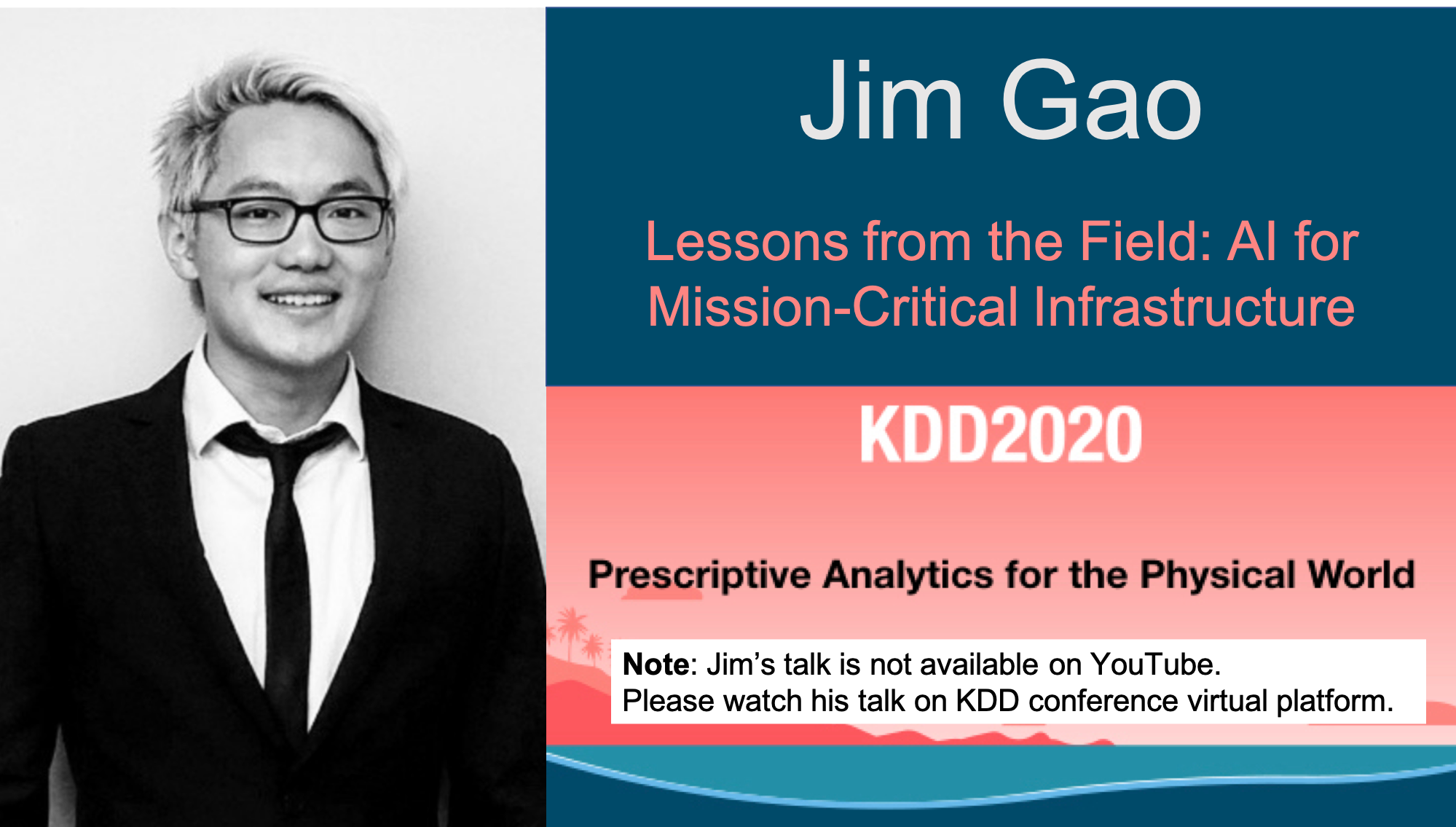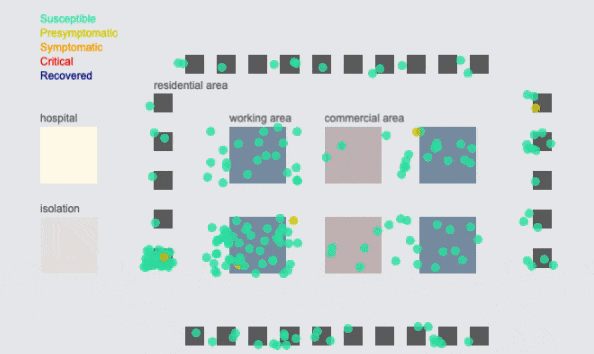Prescriptive Analytics for the Physical World (PAPW 2020)
Workshop held in conjunction with KDD 2020
Prescriptive analytics focuses on analyzing data in order to find the best policy to prevent a disaster (e.g., disease pandemic) or to mitigate a problem (e.g., traffic congestion), and then on prescribing the best actions to implement such a policy in the physical world and/or to study the impact of the implementation of such a policy on the physical world. Encompassing both descriptive analytics and predictive analytics, prescriptive analytics goes beyond by providing actionable insights.
In the data mining research today, however, we see that problems related to prescriptive analytics, especially those problems in the physical world, remain largely unexplored. Take the application in transportation for example. We saw enormous research studies related to problems such as traffic prediction and traffic outlier detection. However, we see little work in terms of how to actually make traffic less congested by taking certain actions (e.g., better traffic signal control strategies or traffic restriction rules). For another example, in epidemic data analysis, we often see research studies to forecast how epidemics spread, but we seldom see data-driven solutions about how to implement policies (e.g., quarantine, public transportation) so that we can minimize the spread of epidemics, and how to study the impact of the implemented policies on the environment as a whole.
In this workshop, we would like to ask this critically important question: how could we learn from the data in order to take better strategic actions in the real physical world?
Talk abstract: The Berkeley Integrated System for TRansportation Optimization (BISTRO) is an open-sourced transportation planning and decision support system that uses an agent-based simulation and optimization framework to develop and evaluate transportation system interventions. We will examine the key opportunities and challenges in using activity-based travel models with agent-based simulation to optimize transportation policies across multiple conflicting objectives. In particular, we will discuss case studies using BISTRO for the optimization of pricing, transit operations, and vehicle fleet mix with respect to multiple objectives representing systemwide congestion-, social-, and revenue-based policy goals.
Talk abstract: Policy informatics provides decision-makers evidence-based policy analytics for real-world situations. This presentation will examine the constraints this problem space imposes on modeling methods. Based on experiences in this area, we suggest the use of synthetic information systems constructed by simulating causal dynamics of socio-technical interactions. This generative approach is suitable for addressing hypothetical policies and can untangle the complex feedback loops among different scales in the system. KDD methods are involved in both the construction and analysis of the synthetic worlds.

Talk abstract: Applying AI to real-world physical systems can be challenging. This is especially true in the industrial sector, where the opportunities for AI and the cost of failure are very high. This talk shares lessons learned on how to apply AI to large industrial systems for maximum safety and impact.
Talk abstract: Computational Urban Sciences refer to the use of information and communication technology and data in the context of cities and urban environments. I present methods to identify patterns of occupancy in building energy consumption and the utilization of urban space. Our mobile phone-based occupancy estimates are integrated with a state-of-the-art urban building energy model to understand their impact on energy use predictions. Second, I present a new urban planning paradigm where within minutes, inhabitants can access their basic living needs by bike or by foot. I show insights of the interplay between the distributions of facilities and population that maximize accessibility over the existing road networks.
Talk abstract: Didi Chuxing is the world’s leading mobile transportation platform that offers a full range of app-based transportation options for 550 million users. Every day, DiDi’s platform receives over 100TB new data, processes more than 40 billion routing requests, and acquires over 15 billion location points. AI has been used in numerous components of DiDi’s platform to improve travel safety, experience and efficiency. This talk systematically presents the challenges and opportunities in the core area of modern transportation systems, and highlights some of our recent works on order dispatching and fleet management via deep reinforcement learning.
Talk abstract: Reinforcement learning is one of the main approaches to learning for decision-making, and has shown super-human ability in playing games. While we are eager to implement such ability in real-world tasks, there are still great challenges to move RL from games to the real-world. In this talk, we will introduce some of our experience and understandings in landing RL, focusing on decision factors, data bias, and simulator learning.
Can you design effective mobility intervention strategies to contain epidemics?
In response to the COVID-19 pandemic, we are hosting a challenge to design mobility intervention strategies to contain an epidemic.
In this challenge, participants can choose different mobility intervention actions for each individual on any given day (e.g., confine in a neighborhood, quarantine at home, isolation from everyone else).
Mobility Intervention Strategies


The microscopic epidemic simulator will run the individual-level epidemic simulation according to the intervention strategy.


The goal is to minimize the number of people who get infected and also to minimize the number of interventions.


The challenge is co-hosted by Penn State University, Tsinghua University, University of Southern California, Qatar Computing Research Institute, Shanghai Jiao Tong University, National and Kapodistrian University of Athens, and Virginia Tech, with the technical support from CSPIRE Technologies, and Tianrang Intelligence and media support from Synced and Datawhale.
* Due to an error of the organizers there were two different API setups that were used by the challenge participants. Specifically: the API get_individual_visited_history_with_p_infection(individualID), which provides additional information on pre-symptomatic cases, was enabled during Phase 1 of the competition and should have been disabled for Phase 2, but the instructions provided to the challenge participants were not sufficiently clear about this. In the top-5 list, the teams that utilised this API in their submitted solution are denoted by an asterisk.